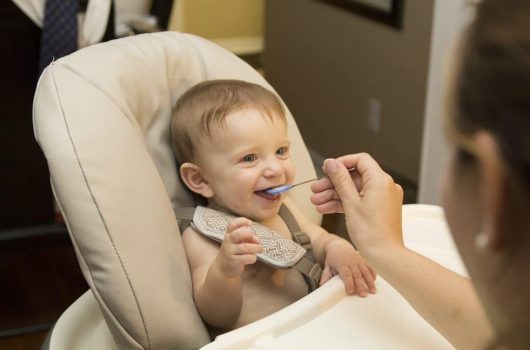When you have your first child, your world gets turned upside down. For the most part, you don’t have a clue about what to do. No number of books that read beforehand can prepare you for the challenges that await you when your child is born. The same can be said for the joys. Kids are fantastic, and nothing can describe the bond between a parent and child.
However, it isn’t all fairytales and happy times. There are some serious issues that parents have to deal with along the way, especially when their children are still infants. Weaning is probably one of the more challenging issues, and the sooner you get it sorted, the better.

What is weaning?
In layman’s terms, weaning is getting someone accustomed to something or getting them used to something other than what they are used to. When it comes to your baby or infant, it merely means to get them accustomed to food rather than milk. Another form of weaning is getting someone to cope without something that they have grown attached to.
Parents will come to realize that there are a couple of forms of weaning, but what is more is that they will find that weaning their children can be as difficult as getting a drug addict off drugs. One of the main reasons why kids grow so attached to things like their dummies is because they find comfort therein.
Why should you wean your children?
For one, although a mother’s milk is packed with enough nutrients to keep the babies healthy, she gets tired, and there comes a stage when the baby needs more sustenance. They become agitated and seem to be crying all the time. It’s just because they are hungry.
Sucking on a dummy is not the best thing for your child’s mouth development. If you don’t wean your child off the pacifier, it could spell dental problems in future. Other than the dental issues, they begin to develop a dependence on the dummy and struggle to soothe themselves without it. The same thing applies to other items that your child becomes dependent on like a blanket or soft toy.
Weaning your children off the items that they are dependent on, teaches them to become more content and teaches them to deal with their frustration, rather than turning to their escape mechanism.
When should you wean?
Unfortunately, there isn’t a straight answer to this question because kids differ and the things that they need to be weaned off from come at various stages. Parents should be vigilant and monitor their children’s behavior patterns.
They should be able to pick up when dependence on something is beginning to form. This is then an appropriate time to start the process. Be warned though; it can be a lengthy and challenging road.
How should you wean?
When it comes to food, it is generally not such a steep road, unless you have a fussy eater. The one thing that you should always remember is that you know best and that your child will eat whatever you give them if they are hungry enough. This is not to say that you should starve your child. It should be a gradual process, and you are bound to hit a couple of snags. The key is never to give up.

When it comes to items that your child has grown attached to, the game is a bit more difficult. You can imagine how adults behave when you take away the substance which they have come to rely on. Kids are no different; they express their disapproval with tantrums and screams. Again, you are the parent, and you must push through the crying.
Take baby steps, remove the item for lesser amounts of time and if your child is old enough, implement a reward system. In the end, you will be grateful for the effort that you stuck it out.
